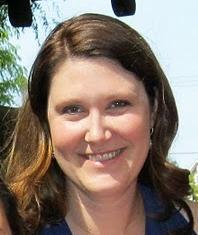Editors note: My son, Michael, constantly complains that none of the reporters who cover the public schools (including me) ever talk to the students. We listen to school board members, adminstrators, parents, sometimes teachers — but the kids never get a voice. I agree — it’s a problem. So when his sixth grade Language Arts class at Aptos came by the Guardian for a field trip (thanks, Ms. Oryall), I decided to let them write their own story, about whatever was bothering them. Here’s the result; I have edited it only for style.
Did you know that the school lunches are made in Illinois? They’re not always organic; in fact, at best they’re only organic once a month.
The district spends $18 million a year on about 4 million lunches.
They’re shipped in a refrigerated truck about 2,000 miles – releasing CO2 emissions.
We got this information by calling Nancy Waymack, executive director of policy and operations for SFUSD.
The lunches are made, she said, by human beings but are packaged by machine. The salads are grown in California and the bread is made in the Bay Area, but those are the only local parts of the lunch.
Aleta Oryall, sixth grade teacher who has worked at Aptos for 12 years, said that for the first nine years she was at the school, food was made at the cafeteria. “They would bake real chickens,” she said. “They served turkey over sweet potatos. It was good.”
Why has it changed?
Waymack said the reason the district can’t go back to local cooking is that it would take more labor, more time and more money. “The district would have to charge $5 or $6 for lunches.”
Students at Aptos are not thrilled with the quality of the lunches. “Most lunches are good, but they are not priced well,” said Jimmy Paterson. “They should be made in the kitchen.”
Jie Tao Tan said that “some are good, but the ones that aren’t good are disgusting because they are soggy.”
Emmanuel Nwabueze said that they lunches were “bad because they’re cold, and they should be made by real people.”
Editor’s PS: When Margaret Brodkin was running for school board, she proposed the district do a bond act to pay for a new central kitchen so all the district’s lunches could be made locally. She didn’t win, but it’s still a good idea.

